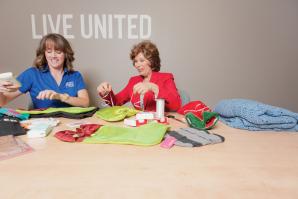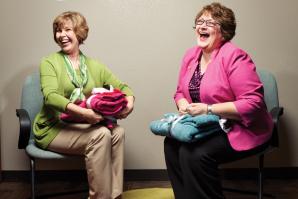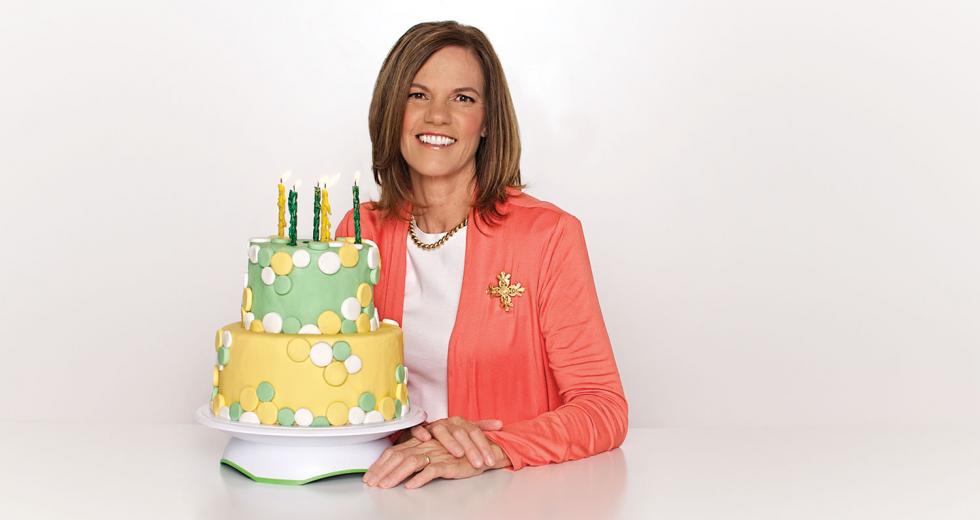It’s been more than 10 years since Char Donnermeyer sat in a communitywide forum to determine which charitable cause needed her attention. The United Way had tapped Donnermeyer and two others to start a group that women around the region could rally behind.
Since its inaugural year in 2001, Women in Philanthropy has grown from 35 members to more than 280, raising $1.07 million for United Way’s foster youth programs. A group of businesswomen, homemakers and community leaders, Women in Philanthropy members raise funds, host donation drives and provide training focused on foster youth.
“It started with an idea and Amber Murry, (vice president of marketing and communications), wanting to establish a woman’s initiative with United Way. It didn’t have a title or a focus or any members,” says Donnermeyer, a founding co-chair.
The forum brought a spectrum of agencies and issues together, all vying for the support and donation dollars of the yet-to-be-named philanthropic group. Donnermeyer says everyone from environmentalists to nonprofits helping low-income people with legal woes showed up. By day’s end, the need to help emancipating foster youth came to the forefront for the Women in Philanthropy co-founders.
“All three of us are mothers and thought there was no way our 18-year-olds could be thrust into the world with the wherewithal (to function as adults without any help),” she says.
As of January, 3,035 children were in foster care in Sacramento County. Of those, an estimated 150 are expected to age out of the system next year. When Women in Philanthropy began 10 years ago, it just focused on Sacramento County. Now, it includes Amador, El Dorado, Placer and Yolo counties, which together had nearly 900 foster youth at the start of this year.
The group would celebrate its 10th anniversary at its annual luncheon Oct. 13 at the Macy’s women’s store courtyard in the Downtown Plaza. The luncheon includes a fashion show featuring Women in Philanthropy members and foster youth, sponsored by Macy’s, as well as a gourmet lunch and video featuring speakers and foster youth. Past speakers have included Claire Pomeroy, CEO of the UC Davis Health System, and Secretary of State Debra Bowen.
The video also will highlight new initiatives for Women in Philanthropy, such as individual development accounts. At Koinonia Family Services facilities in Sacramento and Placer counties, foster youth open these accounts through Bank of America and earn money for good behavior or milestones in their education and job skills.
“I don’t want anyone to think that, because we’ve been doing this for 10 years, the issue is resolved. There is still work to do.”
Char Donnermeyer, founding co-chair, Women in Philanthropy
The individual development accounts are part of a wider financial literacy effort called $en$e-Ability. The project aims to teach youth how to budget, the pitfalls of credit card use and the merits of building a savings account. Through United Way, Women in Philanthropy has funded programs with partners such as Koinonia and Amador-Tuolumne Community Resources, among others.
Loomis-based Koinonia Family Services received a $30,000 grant from United Way this year to fund individual development accounts. Koinonia runs five 24/7 facilities in Sacramento and Placer counties that house about 30 foster youth undergoing drug and alcohol treatment. Before the grant, the teens could earn privileges, such as caffeine and sugar use.
“There is no money for incentives for foster youth. The system doesn’t even fund fun. We have to find money for fun,” says Bill Ryland, administrator for Koinonia.
Now, they can earn $25 if they complete an anger management course, $10 for a resume or $100 after receiving a high school diploma. For many of the teens, the idea of earning money is a new concept, Ryland says.
“When you come from a welfare home, you’ve never seen someone get up and go to work before,” Ryland says.
Another way to earn money is by attending life skills workshops, which are taught by Women in Philanthropy members. Past seminars have focused on the difference between assertive and aggressive communication, resumes, budgeting and interview skills. Thirty-four life skills workshops have been held the past three years, and more are booked into 2012.
Lisa Watts, director of business client ecosystem development at Intel Corp., hasn’t had time to teach a skills workshop yet. She’s been busy chairing and co-chairing Women in Philanthropy since 2007. The biggest leadership challenge the past few years, she says, was increasing the opportunities for donors to become involved at different giving levels. In the past, women had to contribute an annual donation of $1,500.
“We successfully worked with the board to pilot and then fully
implement a tiered donor membership structure that has
significantly broadened the reach and awareness of foster youth
programs,” Watts says. Members can now pay $375 for a bronze
membership, $750 for silver and $1,500 for gold.
Donnermeyer says attracting new members was the biggest challenge
in the early years. But moving forward, it’s keeping the
momentum.
“I don’t want anyone to think that, because we’ve been doing this for 10 years, the issue is resolved,” she says. “There is still work to do.”
In 2001, the 10-county Capital Region had more than 9,200 children in welfare-supervised foster care, compared to about 5,900 in January this year, according to the Center for Social Services Research at UC Berkeley.
David Ballard, CEO of Children’s Receiving Home in Sacramento, says the system has gotten better at placing children and offering a broader array of services for foster youth.
“I do worry that there are many kids that remain at risk in the community due to diminishments in funding and staffing,” he says.
One such resource keeping youth out of the foster system is a crisis resolution center run by Koinonia, which houses teens for up to 30 days. The idea is to diffuse situations in the home without getting the juvenile justice system involved, then place teens back into their homes. The center has had a long-term success rate of more than 80 percent, Ryland says.
The crisis resolution center is also one of the stops made by Women in Philanthropy members around Christmastime. Since 2008, members have donated more than 900 holiday gifts and stockings for 388 local foster children.
Each year, Women in Philanthropy tweaks its programs to better meet the needs of foster youth, from adding partner organizations and financial literacy classes to distributing holiday gifts. Watts is looking to step down soon as the group searches for a new chair. She says the next chair will inherit a new set of opportunities and challenges.
“My advice would be to really look at programs that can expand our reach beyond the traditional workplace giving programs and out into the community,” Watts says. “This is the one thing that I wish we could have gotten done during my tenure as chair, but I think it will be a great accomplishment for the incoming chair if she could really bring that vision to reality.”
Recommended For You

Sister, Mother, Mentor
In 2001, a group of local businesswomen put their heads and dollars together, hoping to make an impact on the lives of Sacramento foster youth.

Expanding a Vision
New leadership means fresh ideas for Women in Philanthropy
Banning together 12 years ago, a group of local women sought out to help foster youth establish healthy lives after emancipation.



